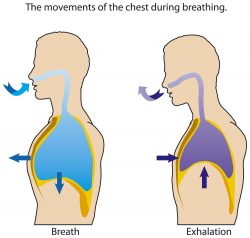 According to a recent study by scientists at Massachusetts General Hospital, increasing life span could be as simple as breathing less oxygen. While many seek to extend their lifespan through caloric restriction or exercise, this study offers an intriguing alternative. When mice were kept at oxygen levels equivalent to the base camp of Mount Everest of 11%, they lived an impressive 50 percent longer than their counterparts exposed to ambient levels.
According to a recent study by scientists at Massachusetts General Hospital, increasing life span could be as simple as breathing less oxygen. While many seek to extend their lifespan through caloric restriction or exercise, this study offers an intriguing alternative. When mice were kept at oxygen levels equivalent to the base camp of Mount Everest of 11%, they lived an impressive 50 percent longer than their counterparts exposed to ambient levels.
According to the research, inhaling less oxygen has been shown to result in cellular damage reduction, stimulating them to deconstruct and recycle damaged parts, thus decelerating the aging process. However, replicability of the study’s outcome in humans remains unclear. While past studies have suggested that individuals dwelling at higher altitudes live longer, these individuals are also more susceptible to low birthweights and stunted growth, driven by the limited oxygen supply.
In this study, which is the first of its kind to explore oxygen restriction in mice, researchers analyzed rodents artificially aged by breeding. At four weeks of age, half of the mice were kept at normal, ambient oxygen levels of 21%, while the other half was confined within a chamber that lowered the oxygen levels to 11%. During the observation period, the mice were supplied adequate water and food as the researchers monitored their deaths. Astonishingly, the longevity of mice exposed to restricted oxygen levels was remarkably higher than that of the control group. The average lifespan of mice living at ambient oxygen levels was 15.7 weeks, but those exposed to lower oxygen conditions lived nearly eight weeks longer, with a mean lifespan of 23.6 weeks. Interestingly, the study recorded similar food intake in both the groups.
Researchers hypothesized that oxygen restriction triggers a pathway in cells that leads to more frequent clearing and recycling of damaged parts. Additionally, it reduces the damage caused by oxidative stress, the molecules released during energy production that can harm DNA. Not only that, but they have suggested that it may less the instances of neurodegeneration and inflammation in the body. While this study was conducted with mice, epidemiological evidence supports the idea that lifelong oxygen restriction could significantly decelerate aging in humans. It is important to note, however, that these effects may only be triggered if the restriction is implemented from a young age.
The findings of this study support previous research that links oxygen restriction with longevity in worms, yeast, and fruit flies. The next step for the researchers is to extend their approach to more species, so as to augment the reliability of their evidence. The possibility of inducing lower oxygen levels for humans at all times is still unclear. More research will be conducted to try and address this shortcoming. While the implications of these findings for human aging remain unclear, the prospects are inspiring for further groundbreaking discoveries in the field of longevity.
To view the original scientific study click below:
Hypoxia extends lifespan and neurological function in a mouse model of aging





